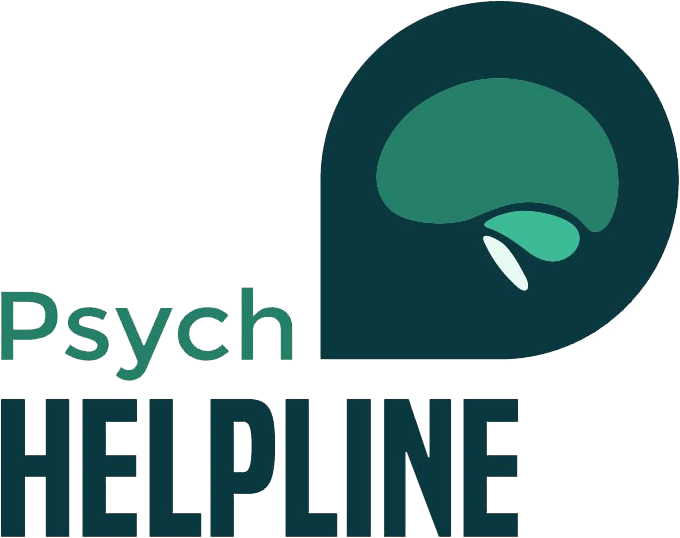Table of Contents
Do you consider yourself a social butterfly? If not, then you are probably like the rest of us that find it hard to venture through an official brunch or a house party with college mates. Not possessing an adequate amount of social skills isn’t an issue limited to young ones. Social skills training for adults is equally important. Some adults continue to struggle with them if they never got a chance to overcome this lacking in the earlier stages of their life.
Before we proceed it is essential to signify what social skills actually are. Social skills are the skills one requires to successfully present themselves in a social setting. Social skills include everything including the way you respond to the person in front of you, how you understand social cues or context, and even one’s body language mid-conversation. Possessing poor social skills can make a person seem unfriendly or downright offensive depending upon the situation they are in. Additionally, those who struggle with these often struggle with a multitude of other problems including low self-esteem and loneliness.
Here’s more on social skills training and how you can try to get better at socialization;
Why Do Social Skills Matter So Much?
The Weight Of Embarrassment
The inability to under certain social cues can land a person in hot water. Possessing inadequate social skills lands you on a path where you miss out on so many things that others understand thoroughly understand. Perhaps uttering the right sentence at the wrong time or the wrong sentence at the right time can lead to public humiliation.
The added impact of that public humiliation or the shame associated with it can also make a person reclusive. It can slowly set your self-esteem on a path where it gradually starts plummeting. Those who have had to live through multiple similar circumstances try to avoid any chance of interactions with strangers. In turn, their self-esteem remains on a downward spiral.
Networking & Professionalism
Networking is a huge deal nowadays. One ought to create personal or public bonds for the sake of financial prosperity. Whether you’re doing it in a more public setting or over the internet, having adequate social skills insures that you seem more likable or trustworthy. These sorts of interactions decide whether or not you’ll remain in touch with those who can benefit you in the future. So just imagine linking up with a higher-up in a firm you aspire to be a part of.
What if you end up responding in a manner that’s generally considered offensive without even realizing what you have done because you lack social skills? Or perhaps it could be a scenario in which you might not even be able to initiate conversation because of your fear of embarrassment. Thus, social skills training is extremely essential among those adults that aspire to be professionally admirable among all.
The Art Of Saying ‘No’
Having a decent hold over social skills also helps you in avoiding damaging scenarios. Some people just don’t know how to say no to another person thus they let things turn out as they are. Social skills training ensures that you can avoid such circumstances instead of just taking things as they are. For instance, if there’s someone who’s being intentionally mean towards you, you’d be able to respond more ideally to them if you do have an adequate hold over social skills.
Loneliness & Connectivity
We are social animals and we thrive most when we are surrounded by people that understand us. This sense of connectivity lifts off the weight of any other mental anguish. When you know that you have certain people to emotionally lay back on, you feel more relaxed and comforted. A sense of community keeps us afloat as we know that everything will make sense in the end even if everything seems complex at the moment. Now if you are someone who lacks this connectivity be at you simply don’t possess the skills required to socialize, you’ll ultimately experience loneliness.
Loneliness on its own can open the gates for many other troubles including various mental anomalies such as depression, anxiety disorders, etc. Consequently, having a basic hold over social skills keeps that sense of community alive inside you. It gives you the sense of security one needs to live in a world like ours.
7 Activities That Can Polish Your Social Skills In No Time
Take Advantage Of Your Passions
Of course, there would be a set of hobbies apart from your professional life that you love spending your time on. Some people prefer learning new languages, some love attending pottery lessons, and others dedicate their time to a good social cause by volunteering. These are your passions as they make you feel more liberated every now and then.
Now, what’s worth noting here is that most of these passions can also give you an added benefit. Most of these social spaces are teeming with people who share the same tastes as you. This in turn gives you and another person in attendance a chance to initiate a conversation on a mutually interesting topic.
Don’t worry its understandable if things go awry the first few times. This is the time to practice those social skills in a social setting you feel more comfortable. For instance; pot making or pottery can be a topic of similar interest for you and another classmate in attendance. So use it as a chance to strike up the chatter. This will ensure that you don’t feel overwhelmed while talking to a stranger on a topic you know less about. Perhaps you’ll get more comfortable with them later on and really start upping your game by slowly picking up social cues.
Avoid Taking An Escape Route
If there is one habit you must internalize from now on, it is to avoid choosing an escape route. From this day forwards you must try your best to stick to your ground even when initiating a conversation feels too overwhelming. In order to survive in this world and learn social skills you’d have to face some discomfort initially. Thus your first response would probably be escaping the whole situation as a whole.
Remember, everything is a learning curve. So, perhaps a few of these initial interactions would serve as learning experiences for you later on and teach you a thing or two that you can alter in the future.
Plan Things Ahead Of Time
This is a strategy that works amazingly in the beginning because once you get a hold over things you don’t really need them anymore. For those who have just started their journey towards better social skills, take this a chance to pre-plan any conversations you can have. Supposedly if you are preparing yourself for a wedding reception you’ll perhaps come across a few of your relatives.
Now, there are a few topics of discussion that you can save up for some of your cousins and some for the elders in attendance. Thinking things through even before you leave the house keeps you calmer and more collected. You feel more secure when you know what you might need to talk about. Bonus points if you can think of some jokes prior to the interaction and crack them when the time comes.
After a decent amount of time, this whole process will start becoming more natural to you and equally entertaining on both ends. Remember to notice and actively listen to the things being said by the ones around you. That’ll give you an insight into whatever’s going on in your life and how you can use it as a conversation starter.
Explore & Take Notes
You can learn a lot simply by exploring the things happening around you. Whenever you get a chance to be around people, notice the ones that thrive the most during social events. There are always one or two attention stealers that know how to initiate conversations with everyone. Those people are the life of the party because they know what topics would interest the ones in front of them or which conversations are worth having. Their body language and how they steer between topics are also worth noting.
Take great notice and learn a few tricks while you are analyzing their interactions. We are not asking you to mimic their entire personality as you, as everyone else should always have a distinct edge of your own. Instead, this is a chance to use what they are doing as an example and to elevate their tricks in your own manner. Make sure you notice how smoothly that particular person knows how to move from a person to person. Notice how they engage with everyone in a crowd through their hand movement, gestures, or expressions.
Work On Your Self Esteem
Most of the time people avoid initiating any conversation simply because they’re scared of being judged. You’ll always spot a person like this who’d be standing in the corner of social gatherings refusing to take a shot at casual conversation. They’re either too vary in initiating conversation because they don’t feel like they’re interesting enough and sometimes be at they’re not pretty enough. Low self-esteem can totally isolate a person even while they’re standing in a crowded room.
If you struggle with low self-esteem you’ll automatically avoid contacting people when deemed unnecessary. You won’t ever pick up on social cues and ultimately it’ll all turn into a pattern. In addition to this, even though you’re refusing to be more social be at of genuine reasons people might assume the reason to be something far worse. Working on your self-esteem not only improves your confidence it gives you a new shot at life. When you feel like you’re “enough”, you don’t find yourself avoiding any interactions. Anything you utter is uttered with confidence.
Try talking to a counselor as it’ll help you track your history of low self-esteem. There can be many reasons why you feel this way and perhaps it all has to do with the way you were brought up. Track the progress you’re making due to counseling and notice whether or not it has had any impact on your social skills.
Let Your Body Language Take Charge
It’s not necessary that you will always have something to add mid-conversation. Perhaps you’d lack some information on the topic being discussed. In that case, let your gestures reciprocate and avoid seeming disinterested. A great way of doing that is by offering nonverbal cues. Nod along on the right occasions as it shows that you are actively listening to the speaker. Maintain your posture if you’re standing upright as it makes you appear more open instead of appearing closed off. Additionally, you can maintain eye contact as that also leaves the impression that you are directing all your attention to the speaker.
Constructive Criticism Changes The Game
Let a partner or friend of yours know that you are trying to be better at socialization. Ask for constructive criticism. In this way, they can offer you advice and fill the missing gaps in your practice. They can alert you when you seem less interested or seem to be divulged on a path that seems the opposite of what you were trying to do. The great thing about this is that their comments won’t seem offensive to you and it will also be like getting live reviews from an actual person.
Final Words
It is never too late to work on yourself and to mend the spaces you consider as broken in your life. Which of these tips has helped you during tense social scenarios? What are some additional tips that have helped you so far? Do let us know!







